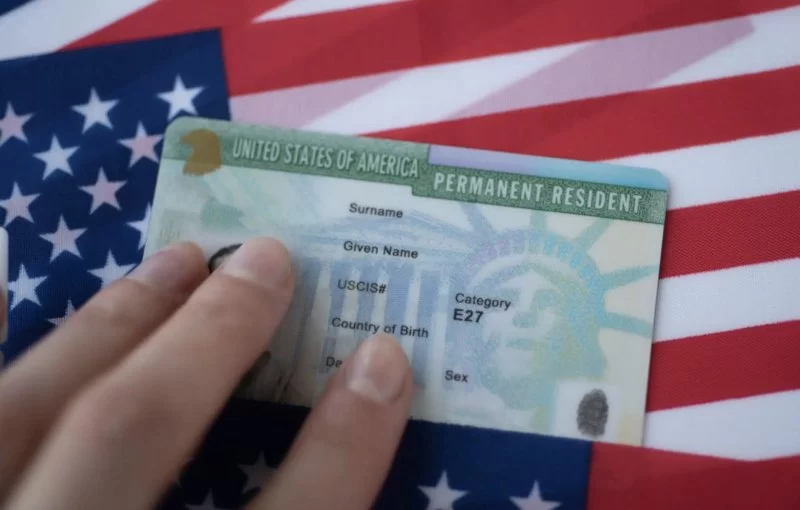- 1 - Understanding Visa and Green Card Denials
- 2 - Common Reasons for Visa and Green Card Denial
- 3 - Steps to Appeal a Visa or Green Card Denial
- 4 - Important Documents to Include in Your Appeal
- 5 - Why You Should Hire an Immigration Lawyer for Your Appeal
- 6 - How to Boost Your Chances of a Successful Appeal
- 7 - Get Legal Help for Your Immigration Case at Fred Miller Lawyer
1 - Understanding Visa and Green Card Denials
A visa or green card denial can be a stressful and disheartening experience for anyone trying to enter or remain in the United States. However, it's important to understand that a denial is not always the end of the road. In many cases, you have the opportunity to appeal the decision. The key is knowing how to file an appeal and what steps to take to strengthen your case.
1.1 - What Does a Visa or Green Card Denial Mean?
A visa denial means that your application to enter the United States on a temporary basis has been rejected. A green card denial, on the other hand, means your application for permanent residency has been denied. Both situations can be disappointing, but they are not necessarily final. Understanding the reason for the denial and your legal options is crucial.
1.2 - Can You Appeal a Denial?
Yes, you can appeal a visa or green card denial. The U.S. Citizenship and Immigration Services (USCIS) allows applicants to challenge the decision by filing an appeal or motion to reopen or reconsider the case. It's important to note that not all denials can be appealed, and in some cases, the denial may be final.
2 - Common Reasons for Visa and Green Card Denial
Understanding the reasons behind a denial can help you prepare a stronger appeal. Common reasons for visa or green card denials include:
2.1 - Incomplete or Incorrect Documentation
One of the most common reasons for denial is incomplete or incorrect documentation. Missing forms, insufficient evidence, or errors in your application can lead to a denial. Double-checking your application and ensuring all required documents are submitted can help avoid this issue.
2.2 - Criminal History
If you have a criminal history, this can be a significant factor in a denial. Certain criminal offenses may make you ineligible for a visa or green card. However, in some cases, a waiver may be available depending on the offense and the circumstances.
2.3 - Failure to Meet Eligibility Criteria
Each visa or green card category has specific eligibility requirements. If you fail to meet these requirements, your application may be denied. For example, if you do not have a valid reason for immigration or fail to demonstrate sufficient financial stability, your application may be rejected.
2.4 - Misrepresentation or Fraud
Providing false information or documents during the application process can lead to an automatic denial. Misrepresentation, even if unintentional, can be seen as fraud, and this can complicate your case.
3 - Steps to Appeal a Visa or Green Card Denial
If your visa or green card has been denied, don’t panic. Here are the steps to follow when filing an appeal:
3.1 - Review the Denial Notice
The first step is to carefully review the denial notice. The notice will explain why your application was rejected and outline your options. It’s essential to understand the reason for the denial before moving forward with an appeal.
3.2 - File a Motion to Reopen or Reconsider
If you believe there was an error in your case, you can file a motion to reopen or reconsider. A motion to reopen requests the USCIS to review the case with new evidence, while a motion to reconsider argues that the decision was made incorrectly based on existing evidence.
3.3 - Submit the Appeal to the Appropriate Authority
If you are not satisfied with the motion results, you may have the option to file an appeal with the Board of Immigration Appeals (BIA). The BIA will review your case and make a final decision. Be sure to submit your appeal within the timeframe specified in the denial notice.
4 - Important Documents to Include in Your Appeal
When filing an appeal or motion, it’s crucial to include all relevant documents to strengthen your case. Here are some important documents to consider:
4.1 - Copies of All Correspondence
Include copies of all correspondence from USCIS or the U.S. consulate, including the original denial notice, receipt notices, and any additional documents they may have sent.
4.2 - Supporting Evidence
Provide any new or additional evidence that supports your case. This can include affidavits, letters of support, financial documents, or other relevant records. The more evidence you have to prove your eligibility, the better your chances for a successful appeal.
4.3 - Legal Documents or Waivers
If applicable, include any legal documents or waivers that can help address the reason for the denial, such as a waiver for criminal grounds or a legal opinion from an immigration attorney.
5 - Why You Should Hire an Immigration Lawyer for Your Appeal
Hiring an experienced immigration lawyer can greatly improve your chances of success when filing an appeal. Here’s why:
5.1 - Expertise in Immigration Laws
Immigration laws are complex and ever-changing. An experienced lawyer can help you navigate the system, ensure all forms are filed correctly, and present the best possible case to increase your chances of success.
5.2 - In-Depth Understanding of the Appeals Process
An immigration lawyer can guide you through the appeals process, helping you understand the steps involved and ensuring deadlines are met. They can also advise you on the best course of action based on your specific circumstances.
5.3 - Increased Success Rate
Having a lawyer by your side can significantly increase the likelihood of your appeal being approved. Lawyers have a deep understanding of the legal arguments and strategies that can strengthen your case.
6 - How to Boost Your Chances of a Successful Appeal
In addition to hiring a lawyer, there are a few key strategies to increase your chances of a successful appeal:
6.1 - Submit a Thorough, Well-Documented Appeal
Ensure that your appeal is comprehensive and includes all necessary documentation. A well-prepared appeal with strong supporting evidence will show that you are serious about your case.
6.2 - Address All Reasons for Denial
Address each reason for the denial individually and provide detailed explanations or additional evidence that counters each issue. This approach shows that you are proactive and willing to meet all the requirements.
6.3 - Be Patient and Follow Up
Appeals can take time, and it’s important to be patient throughout the process. Follow up periodically to ensure your appeal is being processed and that no additional documentation is required.
7 - Get Legal Help for Your Immigration Case at Fred Miller Lawyer
If you’ve received a visa or green card denial and are considering filing an appeal, contact Fred Miller Lawyer for expert legal advice. With years of experience in immigration law, Fred Miller can help you navigate the complexities of the appeals process and improve your chances of a successful outcome. Don’t face the appeal process alone—get professional help to guide you every step of the way.


 atoyan law apc
atoyan law apc 12600 deerfield parkway alpharetta
12600 deerfield parkway alpharetta einbinder dunn
einbinder dunn feher law torrance
feher law torrance gladstein & messinger pc
gladstein & messinger pc jolley and jolley
jolley and jolley